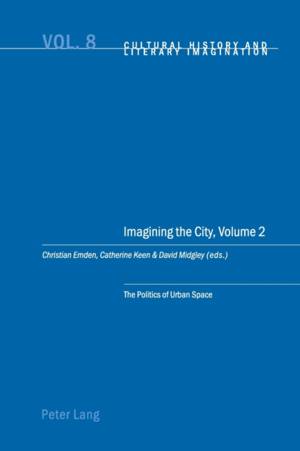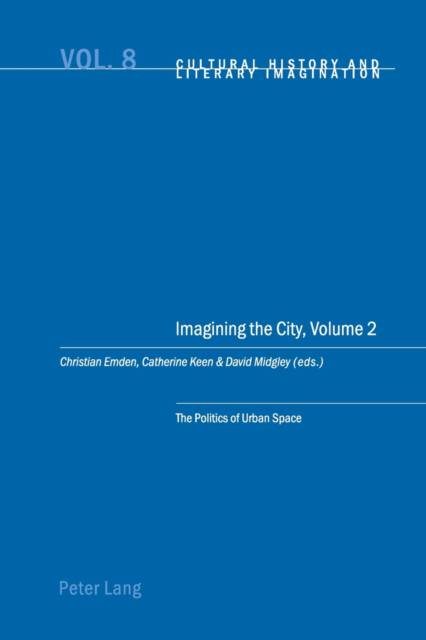
- Afhalen na 1 uur in een winkel met voorraad
- Gratis thuislevering in België vanaf € 30
- Ruim aanbod met 7 miljoen producten
- Afhalen na 1 uur in een winkel met voorraad
- Gratis thuislevering in België vanaf € 30
- Ruim aanbod met 7 miljoen producten
Zoeken
Imagining the City, Volume 2
The Politics of Urban Space
€ 111,45
+ 222 punten
Omschrijving
The urban spaces we inhabit today have been moulded by a combination of historical forces - by social and economic processes, by the specific designs of urban planners, and by the regulatory and ritual practices of earlier times. As arenas of cultural activity they are also imbued with legends, symbolic associations, and historical memories.
This second volume of papers arising from the conference 'Imagining the City', held in Cambridge in 2004, examines the physical organization and the imaginative perception of cities from both a historical and a contemporary perspective, and over a geographical range that reaches from Ukraine to Mexico. It includes discussions of the ways in which cities have been envisaged in late antiquity, in the Middle Ages, and in early modern times, as sites of religious, cultural and political rituals; of the uses to which urban spaces have been put by industrial societies and by the political cultures of the twentieth century; and of the implications for the populations of particular cities of the roles these have played in establishing the historical identity of particular communities (whether national, political or religious) and in the delineation of boundaries between cultures.
This second volume of papers arising from the conference 'Imagining the City', held in Cambridge in 2004, examines the physical organization and the imaginative perception of cities from both a historical and a contemporary perspective, and over a geographical range that reaches from Ukraine to Mexico. It includes discussions of the ways in which cities have been envisaged in late antiquity, in the Middle Ages, and in early modern times, as sites of religious, cultural and political rituals; of the uses to which urban spaces have been put by industrial societies and by the political cultures of the twentieth century; and of the implications for the populations of particular cities of the roles these have played in establishing the historical identity of particular communities (whether national, political or religious) and in the delineation of boundaries between cultures.
Specificaties
Betrokkenen
- Uitgeverij:
Inhoud
- Aantal bladzijden:
- 390
- Taal:
- Engels
- Reeks:
- Reeksnummer:
- nr. 8
Eigenschappen
- Productcode (EAN):
- 9783039105335
- Verschijningsdatum:
- 10/10/2006
- Uitvoering:
- Paperback
- Formaat:
- Trade paperback (VS)
- Afmetingen:
- 152 mm x 229 mm
- Gewicht:
- 521 g

Alleen bij Standaard Boekhandel
+ 222 punten op je klantenkaart van Standaard Boekhandel
Beoordelingen
We publiceren alleen reviews die voldoen aan de voorwaarden voor reviews. Bekijk onze voorwaarden voor reviews.










